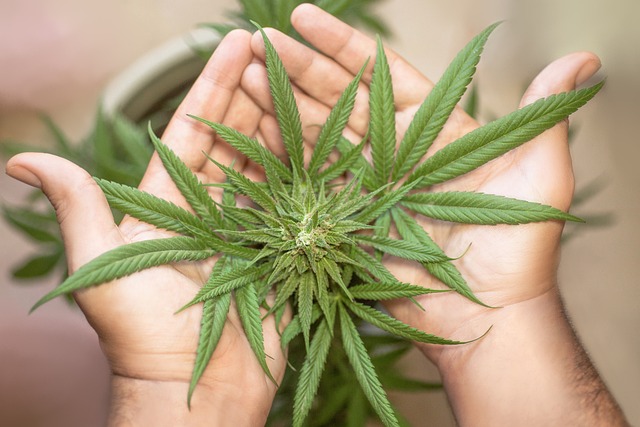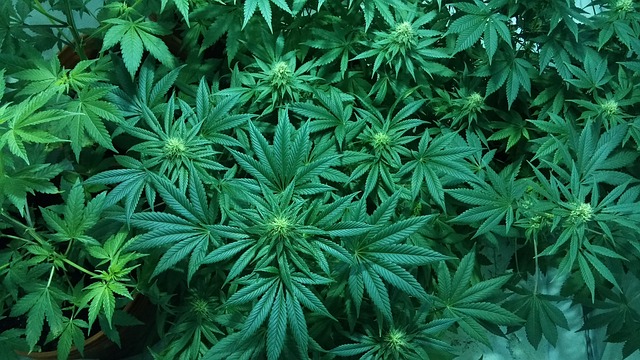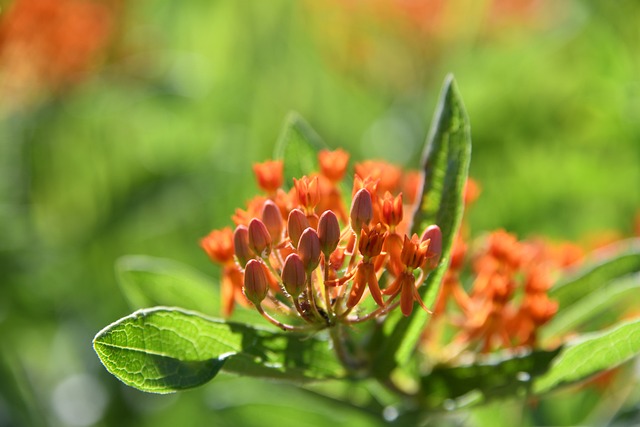
The THCA flower, a non-psychoactive component of cannabis plants, is gaining attention for its strong anti-inflammatory properties. Research indicates that it interacts with the endocannabinoid system, particularly targeting CB2 receptors, which may help reduce inflammation and alleviate symptoms in conditions like chronic pain, arthritis, and inflammatory bowel diseases. Preliminary studies suggest that THCA could also have neuroprotective benefits, potentially aiding in the management of neurodegenerative disorders. Its therapeutic potential is further highlighted by its ability to inhibit pro-inflammatory cytokines and enzymes involved in inflammation pathways. The THCA flower presents an appealing natural alternative for anti-inflammatory treatment without the psychoactive effects associated with THC, offering a promising avenue for those seeking holistic health solutions. Ongoing research continues to explore the full extent of its anti-inflammatory effects and potential applications in wellness and homeostasis support.
Explore the emerging landscape of THCA flower, a natural compound gaining recognition for its potent anti-inflammatory properties. This article delves into the multifaceted benefits of this raw cannabinoid, offering insights into its therapeutic potential and role in enhancing health and wellness. From understanding how THCA interacts with our body’s endocannabinoid system to comparing its effects with other cannabinoid forms, we uncover the science and practical applications behind this plant-based remedy. Join us as we navigate the legal aspects of incorporating THCA flower into your lifestyle, ensuring safe consumption, and discovering how it can be applied topically for targeted inflammation relief. Through personal accounts and expert analysis, this comprehensive guide illuminates the transformative impact of THCA flower on managing inflammatory conditions, integrating it into a holistic approach to health, and setting the stage for future research advancements in cannabinoid science.
- Unveiling the Potency of THCA Flower: An Overview
- The Science Behind THCA Flower's Anti-Inflammatory Effects
- THCA Flower and Its Role in Natural Health and Wellness
Unveiling the Potency of THCA Flower: An Overview

The THCA, or tetrahydrocannabinolic acid, flower has garnered attention in the wellness and medical communities for its potential therapeutic properties. Unlike its more famous counterpart, THC, THCA is non-psychoactive, allowing users to reap its benefits without the mind-altering effects. One of the most compelling aspects of THCA is its anti-inflammatory effects, which have been studied for their potential to alleviate various inflammatory conditions. Research suggests that THCA interacts with the body’s endocannabinoid system, influencing cannabinoid receptors such as CB1 and CB2, thereby modulating immune responses. This interaction may offer relief from symptoms associated with inflammation, making it a subject of interest for those seeking natural remedies for chronic pain, arthritis, and other inflammatory-related issues.
Furthermore, the anti-inflammatory properties of THCA are not its sole benefit. Preliminary studies indicate that THCA may also possess neuroprotective qualities, which could be beneficial in managing neurodegenerative diseases. Its potential to support the body’s natural immune response without psychoactive side effects makes the THCA flower a versatile option for those looking to explore cannabinoids for health and wellness. As research continues, the full spectrum of THCA’s benefits may yet be unveiled, offering new avenues for holistic treatment and care.
The Science Behind THCA Flower's Anti-Inflammatory Effects

Delta-9 tetrahydrocannabinol (THC) is well-known for its psychoactive properties, but its precursor, tetrahydrocannabinolic acid (THCA), has garnered attention for its therapeutic potential. THCA, found abundantly in raw cannabis flowers, exhibits anti-inflammatory effects that are the subject of growing scientific interest. The body’s endocannabinoid system, which plays a crucial role in regulating a range of physiological processes, including pain and inflammation, is notably affected by cannabinoids like THCA.
Research suggests that THCA interacts with the CB2 receptors of the endocannabinoid system, which are primarily responsible for modulating the immune response. This interaction can lead to a reduction in pro-inflammatory cytokines, such as TNF-alpha and IL-6, which are often elevated in inflammatory conditions. The anti-inflammatory effects of THCA are also thought to stem from its ability to inhibit the activity of enzymes and receptors involved in inflammation pathways. This makes THCA a potential candidate for therapeutic applications aimed at managing various inflammatory diseases, without the psychoactive impact associated with THC. Studies have shown that THCA can potentially offer relief from symptoms related to conditions like arthritis and colitis, highlighting its promising role in natural anti-inflammatory treatments.
THCA Flower and Its Role in Natural Health and Wellness

Delta-9-tetrahydrocannabinolic acid (THCA) is a non-psychoactive cannabinoid found naturally in cannabis flowers, often cited for its therapeutic properties. The THCA flower, which contains THCA in its raw form before heating, has garnered attention for its potential anti-inflammatory effects. Research suggests that THCA may interact with the body’s endocannabinoid system, influencing pain and inflammation regulation without the psychoactive impact associated with its decarboxylated counterpart, THC. This makes THCA a compelling compound for those seeking natural health and wellness solutions, particularly for conditions characterized by inflammation or chronic pain. The anti-inflammatory effects of THCA are believed to stem from its ability to inhibit certain enzymes and modulate immune responses, offering a promising avenue for therapeutic intervention without the psychoactive side effects commonly associated with cannabis use.
Incorporating THCA flower into wellness routines may offer a range of benefits, from reducing acute inflammation to potentially alleviating symptoms associated with various health conditions. Unlike many pharmaceutical anti-inflammatory drugs that can come with a host of side effects, the THCA found in cannabis flowers is often regarded as well-tolerated and non-toxic, making it an attractive option for natural health enthusiasts. As interest in plant-based therapies grows, the role of THCA flower in promoting wellness and maintaining homeostasis within the body continues to be a subject of considerable scientific investigation.
THCA flower, a non-psychoactive cannabinoid found in hemp and cannabis plants, emerges as a promising wellness ingredient due to its notable anti-inflammatory properties. This article has delved into the potency of THCA flower, elucidating its scientifically backed benefits for health and wellbeing. The evidence suggests that incorporating THCA flower into one’s routine may offer significant relief from inflammation, a common issue affecting many individuals. As research continues to unfold, the role of THCA flower in natural health and wellness is becoming increasingly clear, offering a valuable addition to holistic health practices. With its anti-inflammatory effects at the forefront of current scientific interest, THCA flower stands as a noteworthy choice for those seeking alternative methods to enhance their overall health.







